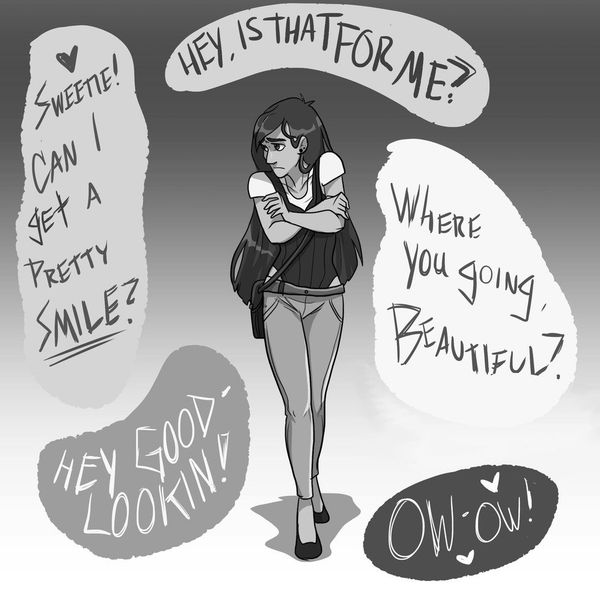Cultural appropriation—a concept introduced fairly recently to the average American, defined as the adoption or use of the elements of one culture by members of another culture. Most likely, you've heard it used in a negative context, to describe Khloé Kardashian's choice to wear dreadlocks or Miley Cyrus's comments about hip hop culture. It is most often used when a white celebrity uses or discusses black cultures, although other minority cultures can, in theory, be affected by cultural appropriation as well.
While it makes sense that white celebrities should not be propagating incorrect stereotypes about minority cultures, the constant accusations of cultural appropriation to describe white celebrities' words or actions is starting to have a negative effect on the fight to break down stereotypes.
It is true that we sometimes unfairly represent minority cultures. Take, for example, Native Americans; many subscribe to an unfortunate stereotype that all "Indians" wear huge feather headdresses. Look up Native American on Google images and the first pictures that pop up are men or women wearing magnificent feather headdresses. While certain tribes do indeed sometimes wear feather headdresses, many different Native American tribes exist, and many do not wear ever feather headdresses; the assumption that all Native Americans wear feather headdresses all the time is ignorant and disrespectful, especially when the majority of Native American Halloween costumes fit this stereotype—an excellent example of true cultural appropriation.
As Americans, our duty is to learn, to start conversations, to spread information; our country was built on freedom of thought, religion, culture and beliefs. When we meet people who disagree with us (which, I promise, will happen at some point in everyone's life), we are allowed to discuss our differing opinions or perspectives; in fact, we have a constitutionally protected right to do so, a right that does not extend to the majority of the people in our world. When we see people wearing feather headdresses so they can be costumed as an "Indian," or when we see people making the judgment that all poor African Americans are criminals, or when we see people treating those of Hispanic descent as dumb or stupid because of their accent, we have the freedom to call them out. We have the right to challenge preconceived stereotypes, to learn about and appreciate the hundred of cultures blended together in the United States.
However, it seems we have begun to abuse this right, if Khloé Kardashian wearing dreadlocks has become a sign of cultural appropriation. Wearing a feather headdress to be an "Indian" is obviously a result of ignorance. But Khloé Kardashian's goal wasn't to dress up as an African American. Her goal wasn't to reinforce the stereotype that all African Americans have dreadlocks. Khloé Kardashian wore dreadlocks because she was exploring fashion, exploring a new style. She was embracing an aspect of black culture not because she wanted to be black, but because she appreciated dreadlocks.
In one of the articles I read, someone tweeted that "y'all think black people w/ dreads are thugs and gross but when a white person does it for marc jacobs it's fashion?" The stereotype is when people have dreadlocks, they're criminals; by wearing dreadlocks, Khloé Kardashian was proving the opposite, that the people who wear dreadlocks aren't simply black criminals. To me, it makes no logical sense. Everyone called cultural appropriation when she wore dreadlocks and complained because she broke the stereotype surrounding dreadlocks? Aren't we all trying to break stereotypes, not reinforce them?
There is a difference between disrespecting a culture and accepting or validating it. The stereotype around dreadlocks is that only poor black criminals wear them, or that they're "gross." Khloé Kardashian, a rich, white female, wore them and showed that they were a valid fashion option for people of all colors; she showed that it's not just black criminals embracing this hairstyle. And for that, she was hated, judged, and essentially called racist.
In recent years, we've started to accept people, people of all cultures, races, sizes, religions. And it seems—at least from the Khloé Kardashian debacle—that some don't want to be accepted. They would rather be stereotyped, rather be the poor, suffering, tragic hero, than allow their culture to be accepted and embraced. There is a difference between disrespecting a culture—wearing a feather headdress to be an "Indian"—and embracing a specific trend within a culture—trying out dreadlocks because it seems like a cool hairstyle. Khloé Kardashian was complimenting black culture. She believed that African Americans had a good idea when it came to dreadlocks, and so she gave it a try. We need to stop throwing out accusations of cultural appropriation with such casual thoughtlessness and realize that the basis of our country is acceptance—we live here so that we can be whoever we want to be, regardless of race, religion or background. Let's not let cultural appropriation get in the way of our personal freedoms.



















